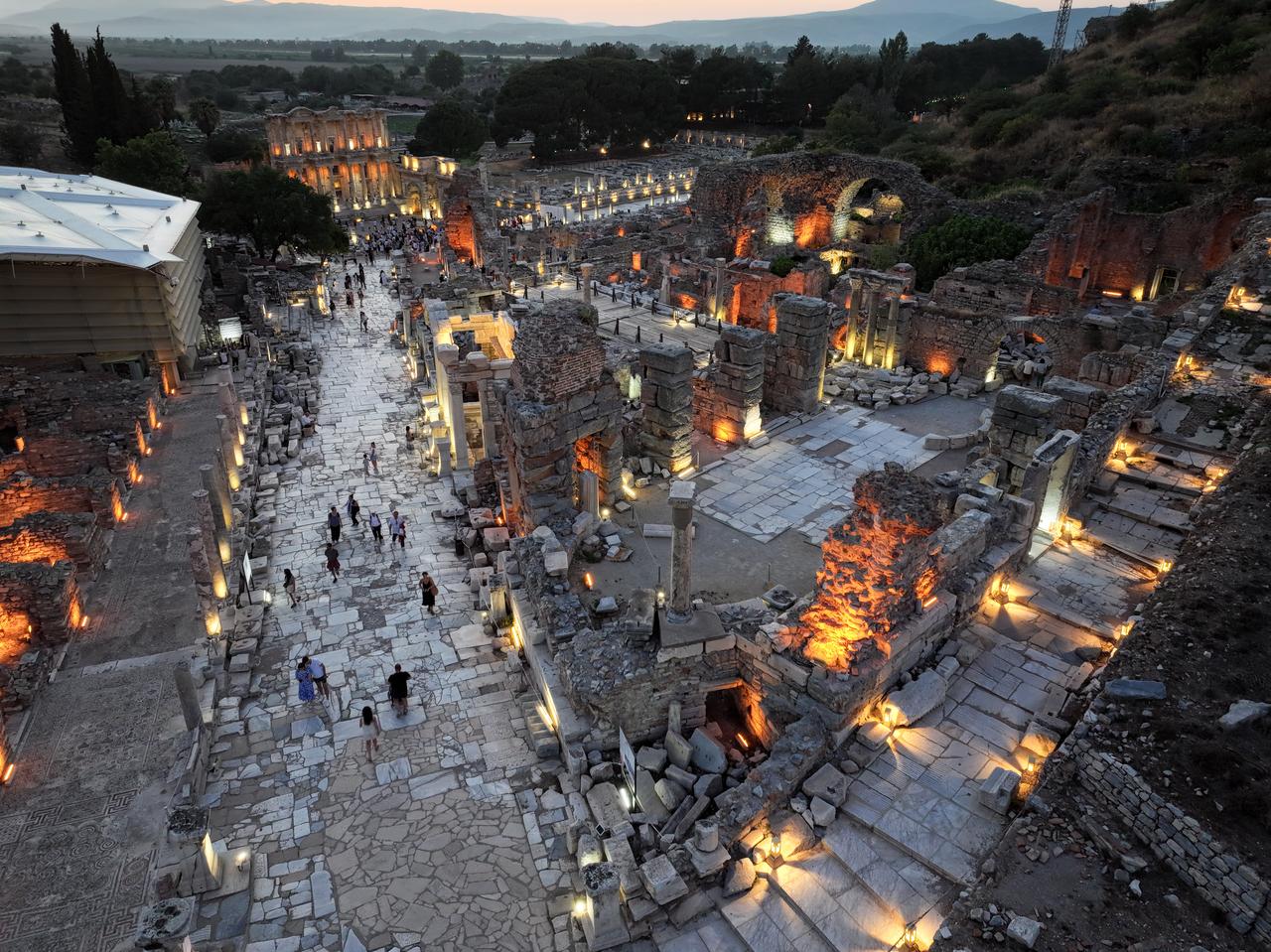
The UNESCO World Heritage-listed ancient city of Ephesus in Türkiye now welcomes visitors after sunset as part of the Ministry of Culture and Tourism’s new "night museum" initiative.
Located in Izmir’s Selcuk district, Ephesus, whose origins date back to the Neolithic period, is a living chronicle of Anatolia’s rich past.
The city bears the marks of the Hellenistic, Roman, Byzantine, Beylik, and Ottoman periods, attracting millions with its timeless aura.
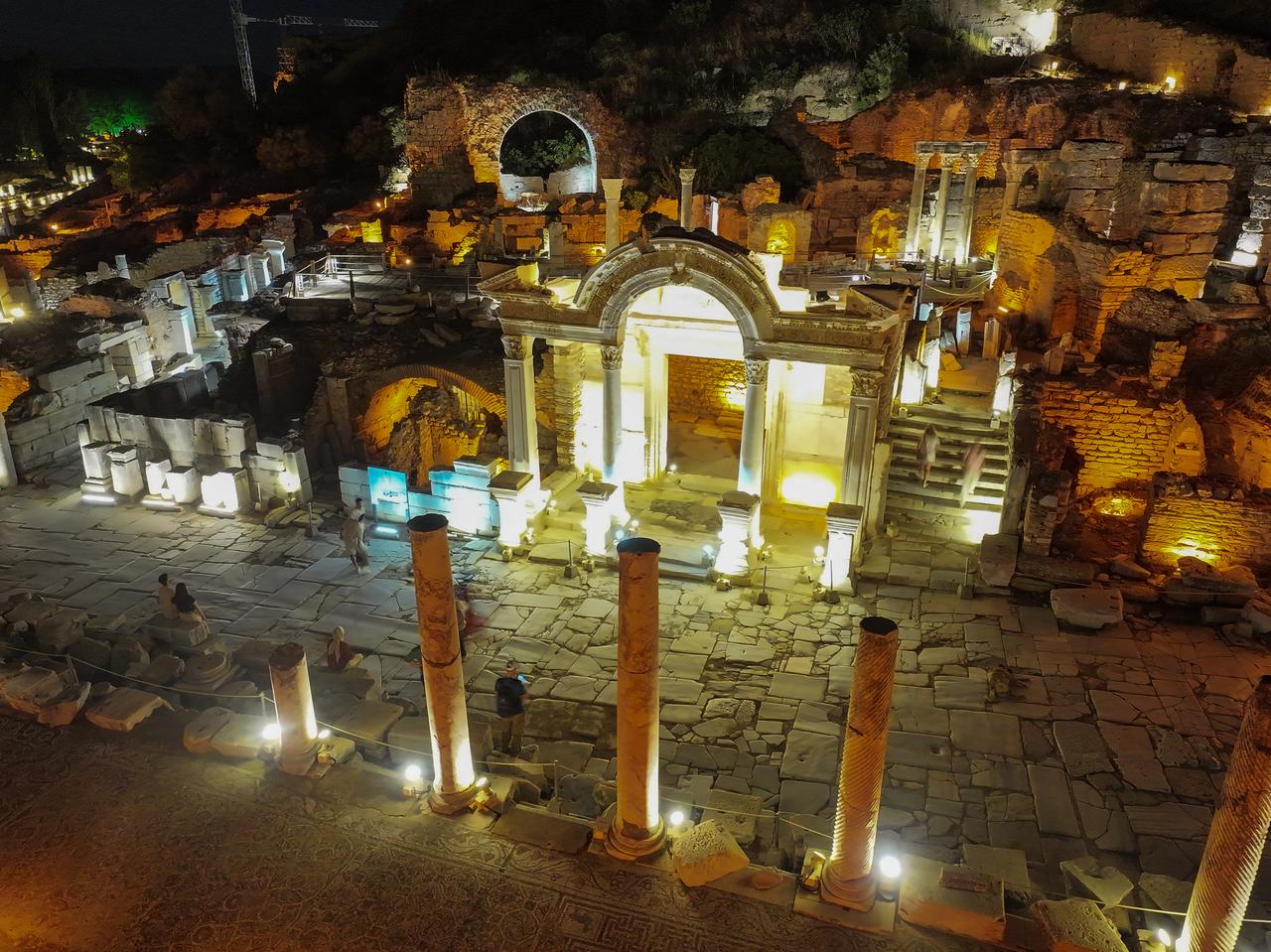
Now, thanks to a new lighting system installed across its iconic sites— including the Celsus Library, the Agora, Kuretler Street, the Temple of Domitian, the Grand Theater, and the Terrace Houses—Ephesus is open to visitors between sunset and midnight.
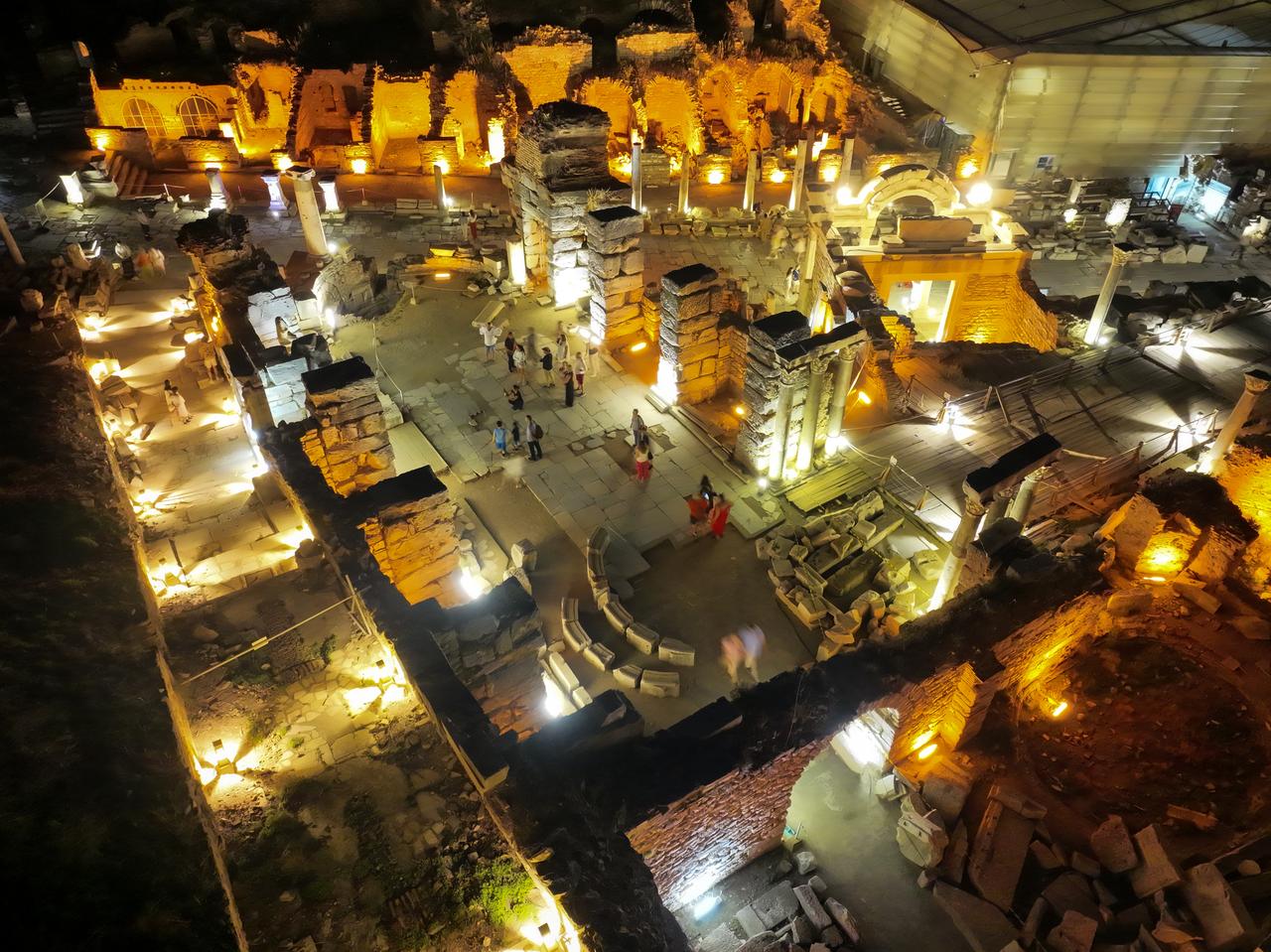
Launched on June 4, the night museum program allows tourists, especially those who prefer beach activities during the day, to explore the ancient city in cooler evening hours.
Ephesus Museum Director Murat Kaleagasioglu told Anadolu Agency that the first night drew large crowds, with thousands arriving to experience the illuminated ruins.
“We launched night visits on June 4. It continues until 1 October, every Wednesday through Saturday, from 7:00 p.m. to 11:00 p.m. The last entry is at 10:00 p.m.,” he explained.
Due to scheduled events and reservations, the site will not be open for night visits on Sundays, Mondays, and Tuesdays.
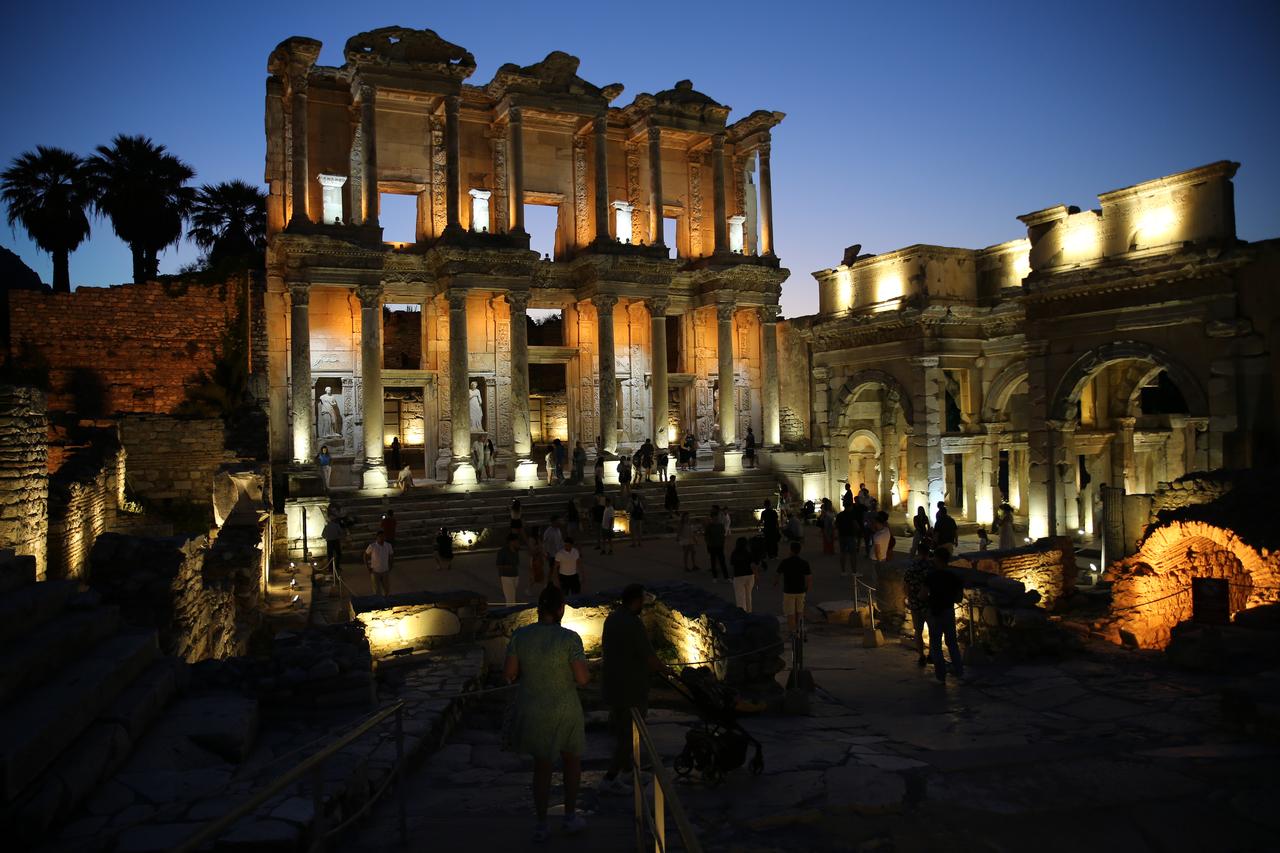
Kaleagasioglu added that 300,000 people visited Ephesus during last year’s night museum period, and they expect that number to rise in 2025.
“Nighttime gives Ephesus a completely different ambiance. We kindly ask visitors to be more sensitive to this historical heritage during their night experience.”
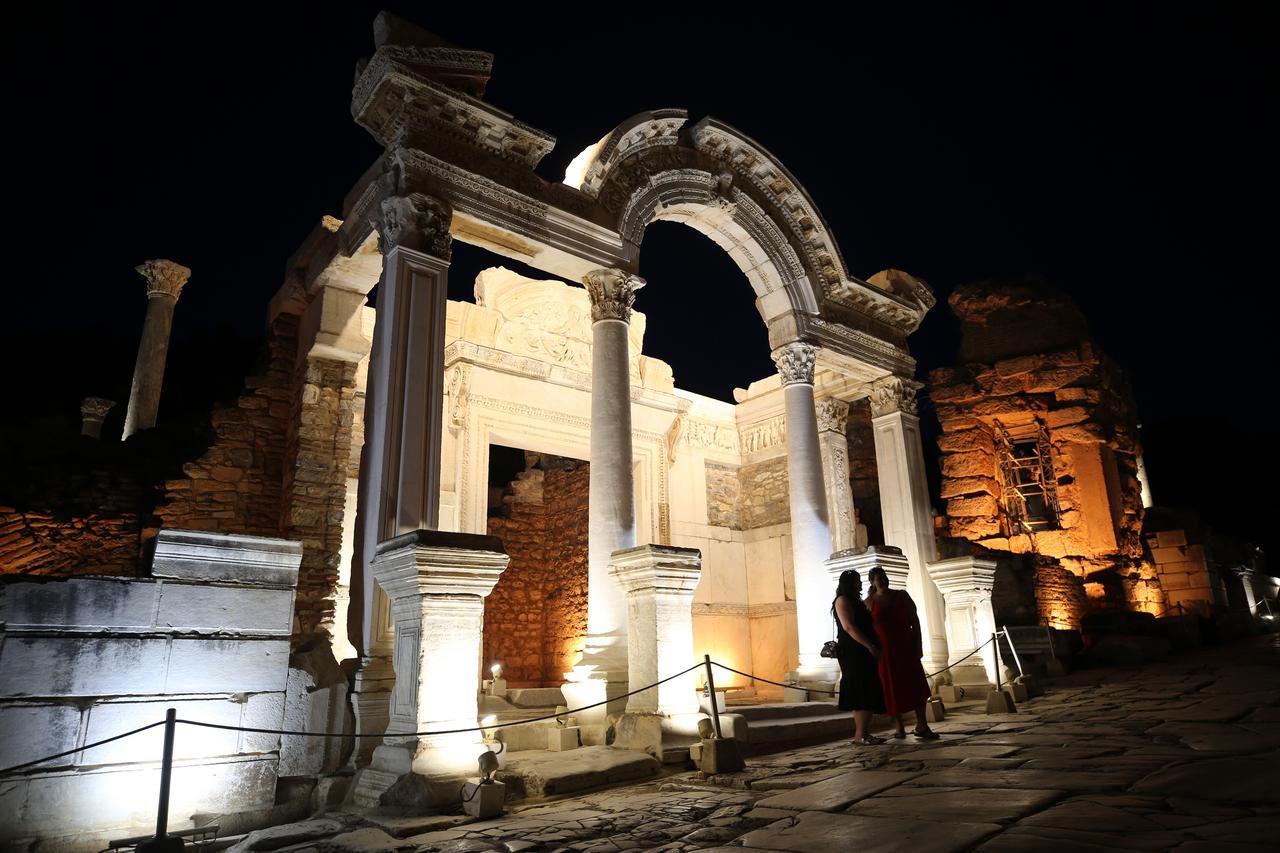
Among the first to enjoy the night opening were Emin and Ozlem Guler from Bursa. “It’s our first visit, and we’re amazed. We came with our child and took countless photos,” said Emin.
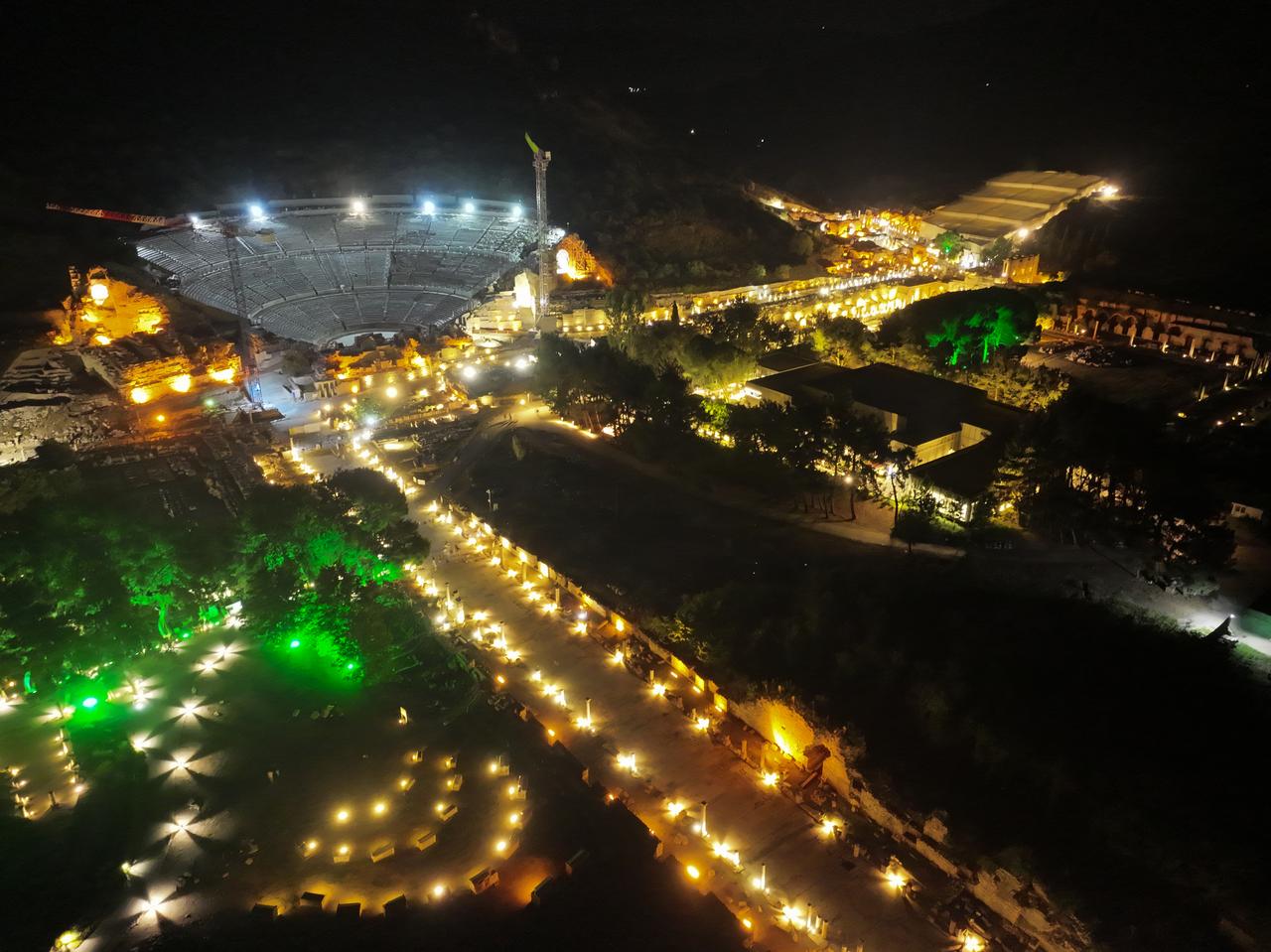
Ekin Yilmaz and Mustafa Canevi, Istanbul visitors, were also delighted at stumbling upon the night museum. “Seeing Ephesus illuminated was the most beautiful surprise of our holiday,” said Yilmaz.
“The lighting creates a wonderful aura, especially around the Celsus Library,” added Canevi.
“It’s a once-in-a-lifetime experience.”